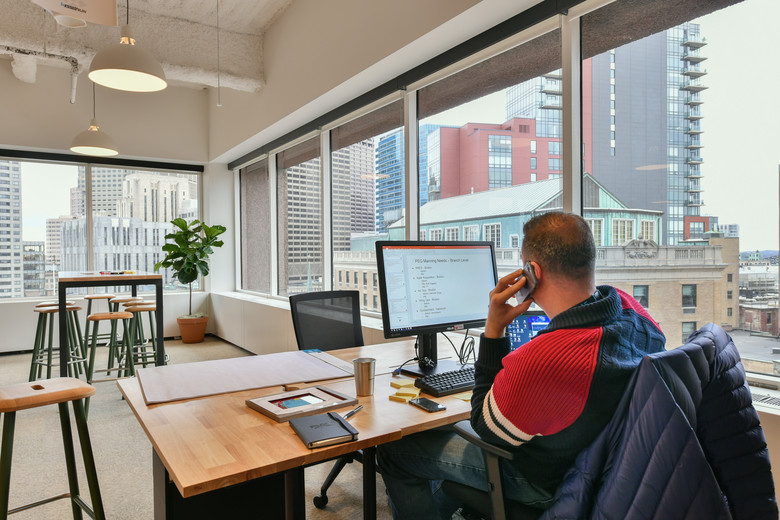With new demand likely remaining slow in H1, Colliers expects Grade A office rents to decline in 2021, with overall rents dropping by 3.7% this year and showing improvements from 2023 onwards.
In 2021 occupiers should enter flexible leases to allow them to operate in a hybrid work-from-home model and keep their CAPEX low, says Colliers, a diversified professional services and investment management company, in a report ‘India Market Outlook 2021’.
With operations in 67 countries, it has more than 15,000 enterprising professionals work collaboratively to provide expert advice to real estate occupiers, owners and investors.
During 2020, office leasing activity remained sluggish as the uncertain economic environment and business conditions brought on by COVID-19 nudged occupiers to postpone their decisions and reassess their real estate portfolios.
Net absorption across major markets in India was 20.6 million
square feet (1.9 million sq meters), a decline of 42.8% YoY. Occupiers focused on portfolio optimisation by relocating, consolidating and downsizing. About 45% of the demand was led by technology firms with larger companies still considering expansion in recently completed projects with better wellness and hygiene standards.
As COVID-19 drags into 2021, the company expects transaction volumes to remain subdued over the first half. It expects technology firms to continue to lead office space demand in Bengaluru, Hyderabad, Pune, Gurugram and Noida, where some firms have announced plans to ramp up the hiring process.
“Technology companies are expanding and are likely to fuel demand for office space over the next two years. Over the next three years, technology companies dealing with digitisation, artificial intelligence, machine learning and robotics ought to expand led by increasing demand for such services,” said Colliers Managing Director, Office Services (South India) Arpit Mehrotra.
The company expects tech companies to continue to look at markets like Bengaluru, Hyderabad and Chennai.
Despite concerns about potential oversupply in select micro-markets and muted demand, the company saw new supply in 2020 of 38.1 million square feet (3.5 million sq meters), a 2.4% decline YoY. Bengaluru, Hyderabad and Delhi NCR drove the bulk of new supply, the report added.
During 2021, Colliers forecasts net absorption of 20 million sq feet (1.8 million sq meters), similar to 2020. After seeing a 42.8% decline in demand in 2020, it believes that in keeping with global trends, occupiers will optimise their portfolios in 2021 and 2022.
Occupiers approaching lease expiration are undertaking portfolio optimisation efforts by relocating to cheaper and/or smaller offices. For perspective, in 2021, leases expiring total about 81 million sq feet (7.5 million sq meters), with 65% of these being smaller than 10,000 sq feet (929 sq meters). Delhi-NCR, especially, is witnessing this trend with occupiers moving to locations such as Golf Course Extension Road in Gurugram.
During 2020, flexible workspace operators leased about 3.0 million sq feet (278,707 square meters) of space, accounting for 9% of the total leasing. The operators are expecting greater traction in demand for their centers as occupiers look at stop-gap arrangements while optimizing their portfolio.
“Occupiers will continue to look for flexibility from developers as employees gradually return into offices in H1 2021. Managed office and enterprise solution players will play a key role in the overall take-up of offices spaces throughout 2021,” said Colliers Managing Director, Regional Tenant Representation (India) Bhupindra Singh.
“Pragmatic migration towards a hybrid office portfolio should gain momentum amongst the occupier community. Expenses incurred for transporting employees towards office may get replaced with taking smaller offices closer to employee hubs or be in campuses with good transport connectivity,” he added.
In view of the COVID-19 pandemic, landlords ought to become increasingly focused on health and wellness. Developers that invest in well-being and health will likely see better returns. This underpins the importance of a high-performance building (HPB) with focus on sustainability and wellness.





